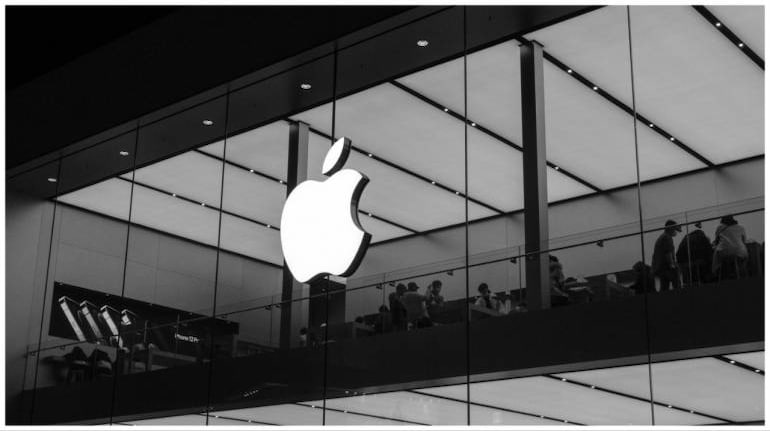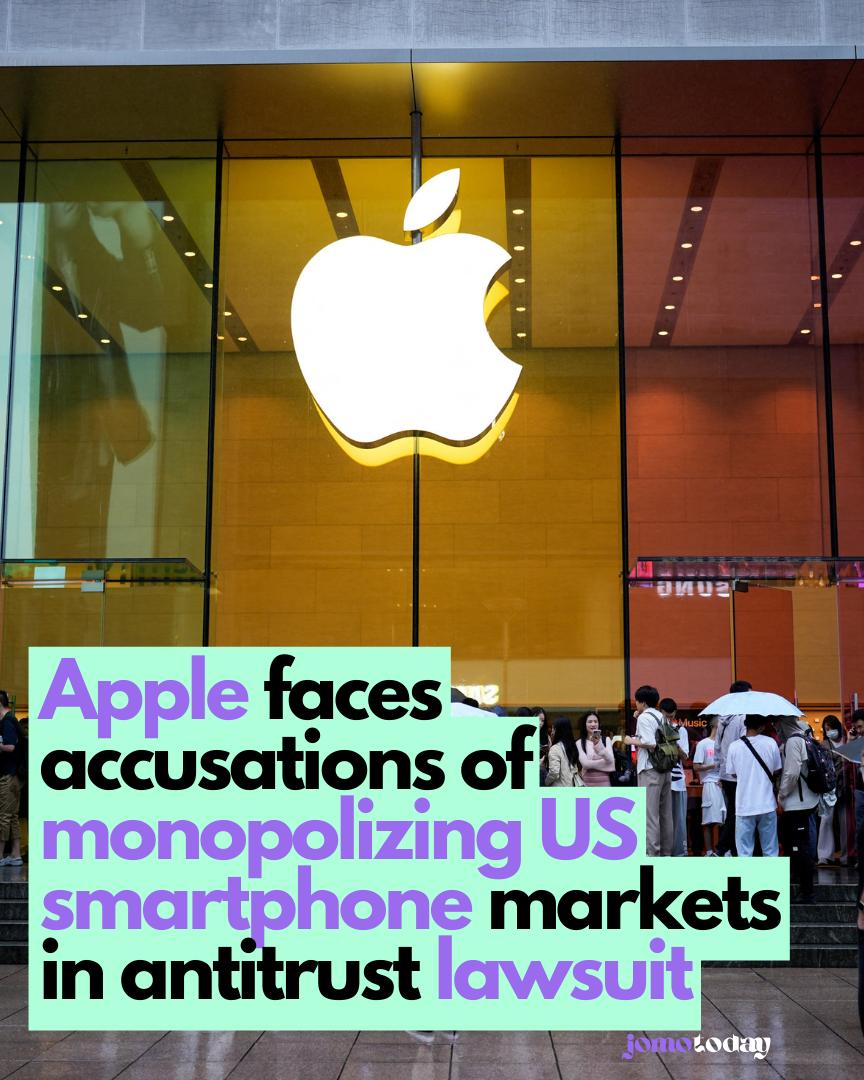On Thursday, the U.S. Department of Justice, along with 15 states, filed a lawsuit against Apple (AAPL.O) as part of a broader government initiative targeting major technology companies. The lawsuit accuses Apple of monopolizing the smartphone market, stifling competition from smaller players, and inflating prices.
This legal action adds Apple to a list of tech giants, including Alphabet’s (GOOGL.O) Google, Meta Platforms (META.O), and Amazon.com (AMZN.O), that have faced regulatory scrutiny under both the Trump and Biden administrations.

Attorney General Merrick Garland emphasized in a statement that consumers should not bear the burden of higher prices due to companies violating antitrust laws. He warned that without intervention, Apple will further solidify its dominance in the smartphone market.
The Justice Department highlighted Apple’s pricing strategy, noting that the company sells iPhones for as much as $1,599, yielding higher profits compared to its competitors. Furthermore, officials pointed out that Apple imposes charges on various business partners, including software developers, credit card companies, and even rivals like Google, which ultimately results in increased prices for consumers and boosts Apple’s profits.
Since its inception as a minor competitor in the personal computer industry, Apple has relied on a business model centered on charging users a premium for technology products, with Apple controlling most aspects of device functionality and usage. The Justice Department aims to dismantle this model by compelling Apple, valued at $2.7 trillion, to provide users with greater options regarding how apps can access the hardware Apple designs.
Apple’s stock experienced a 3.6% decline in trading. Apple has refuted the accusations leveled against it by the government, emphasizing that the lawsuit poses a threat to their core principles, which distinguish Apple products in highly competitive markets.
The Justice Department, along with the District of Columbia, has filed a lawsuit seeking reforms within Apple. An official stated that any remedy must correspond to the harm proven in court, hinting at the possibility of structural changes such as breakup or downsizing of Apple.
The lawsuit, spanning 88 pages and filed in U.S. federal court in Newark, New Jersey, aims to address Apple’s alleged anticompetitive behavior and exclusivity, with a focus on fostering competition to lower smartphone prices, reducing developer fees, and fostering innovation in the smartphone market.
The lawsuit filed by the U.S. accuses Apple of intentionally compromising the quality of its products to stifle competition, pinpointing five specific instances where Apple allegedly hindered technologies that could have bolstered competition in the smartphone market.
These instances include impeding the development of “super apps,” cloud-based gaming apps, messaging apps, smartwatches, and digital wallets. For example, the U.S. claims that Apple deliberately made it challenging for rival messaging apps and smartwatches to function seamlessly on its devices.
Furthermore, the Justice Department aims to define the market as the U.S. smartphone market, where Apple holds slightly over half of the share, whereas Apple is pushing for a global market definition, where its share is around one-fifth.
The lawsuit cites email correspondence from the late Apple co-founder, Steve Jobs, expressing dissatisfaction with how easily consumers could switch from iPhones to Android devices. Jobs purportedly vowed to coerce developers into utilizing Apple’s payment systems to solidify both developer and consumer loyalty. The specific remedies sought by the Justice Department remain unclear, but the complaint requests the court to restrain Apple from leveraging its control over app distribution, contracts, and proprietary software interfaces to suppress competitors and to implement any necessary measures to restore competitive conditions.
Apple has faced antitrust scrutiny and legal action in various jurisdictions, including Europe, Japan, and Korea, as well as lawsuits from competitors like Epic Games. Despite enduring a prolonged legal battle initiated by Epic Games in the U.S., where the court ruled in Apple’s favor regarding antitrust violations, Apple was ordered to permit alternative payment methods for in-app purchases. U.S. Attorney General Merrick Garland emphasized the department’s confidence in the case, stating that they bring lawsuits based on justifiable facts and the likelihood of success.
Apple has consistently defended its restrictions on third-party access to user data and iPhone hardware as essential for privacy and security. In Europe, a new law known as the Digital Markets Act has dismantled Apple’s App Store business model, prompting Apple to allow developers to offer their own app stores without charging commissions. However, competitors like Spotify and Epic contend that Apple’s measures still inhibit the easy establishment of alternative app stores.
Read More: Tesla owners instructed to avoid wearing Apple VR headsets while driving.
Disclaimer:
This content is AI-generated using IFTTT AI Content Creator. While we strive for accuracy, it’s a tool for rapid updates. We’re committed to filtering information, not reproducing or endorsing misinformation. – Jomotoday for more information visit privacy policy






Leave a Comment